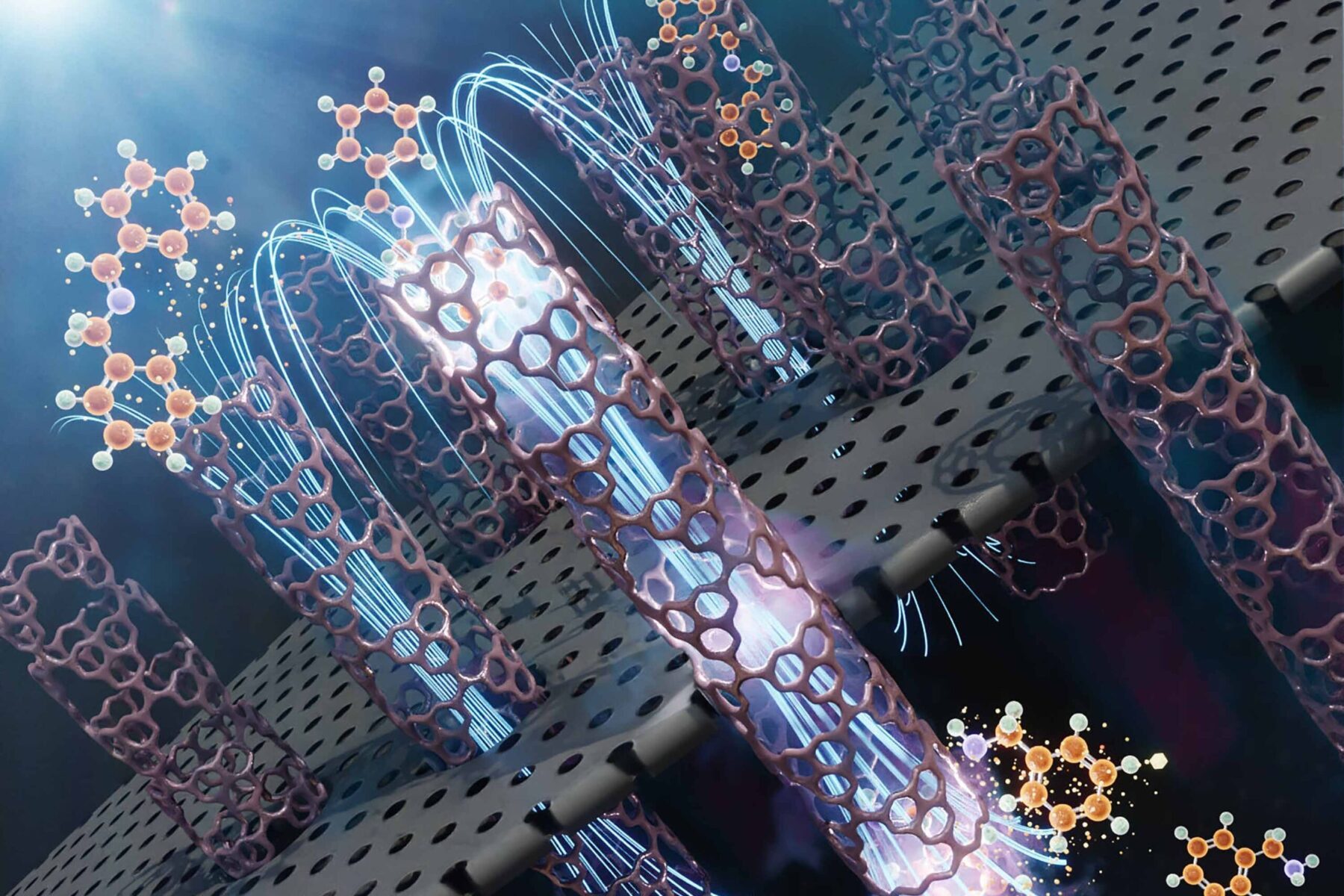
From Polluted to Clear Water in Milliseconds – New Findings in the Field of Nanoscience
MPIKG | Researchers at the Max Planck Institute of Colloids and Interfaces have developed a membrane consisting of countless nanometer-sized tubes. They used this as a nanoreactor to convert water labelled with methylene blue into clear water in milliseconds with the help of sunlight. “Allowing reactions to take place at lightning speed in liquids with lower viscosity represents a new opportunity for chemistry,” says Prof. Dr. Markus Antonietti, Director of the Department of Colloid Chemistry.
Chemistry is often considered a mature discipline in which new findings only emerge on the outer edges. A team led by group leader Dr. Aleksandr Savateev has now shown that there are still remarkable surprises, especially inside – at the nanoscale. Properties of common liquids such as water depend on the size of the container in which they are enclosed. If water is filled as an already quite agile liquid with low viscosity into a nano-sized container in which only a few water molecules fit, it becomes “superfluidic”. The smaller the room, the greater the superfluid effect. So not all water is the same.
Functionality
In their reaction experiments, the Savateev group developed a membrane consisting of billions of carbon nitride tubes arranged in parallel. Each of these tubes has a diameter of a few nanometers, which corresponds to 1/10,000 of a human hair. They observed that water glides through them without any friction. Light is used as a driver for the chemical conversion of polluted to clean water, while the quantum confinement generated by the membrane also directs the energy of light with unprecedented efficiency. The concave surface of the parallel, almost one-dimensional tubes serves as a kind of mirror that concentrates the internal electric field inside the nanotube. In combination with the light incident from outside, this increases the reaction speed enormously. “In ordinary 3D space, these millisecond response rates are simply impossible,” says Dr. Savateev.
“We are actively working on the development of this technology to produce fuel and other materials important for society with sustainable energy such as sunlight in simple devices, comparable to a coffee filter,” says Aleksandr Savateev.